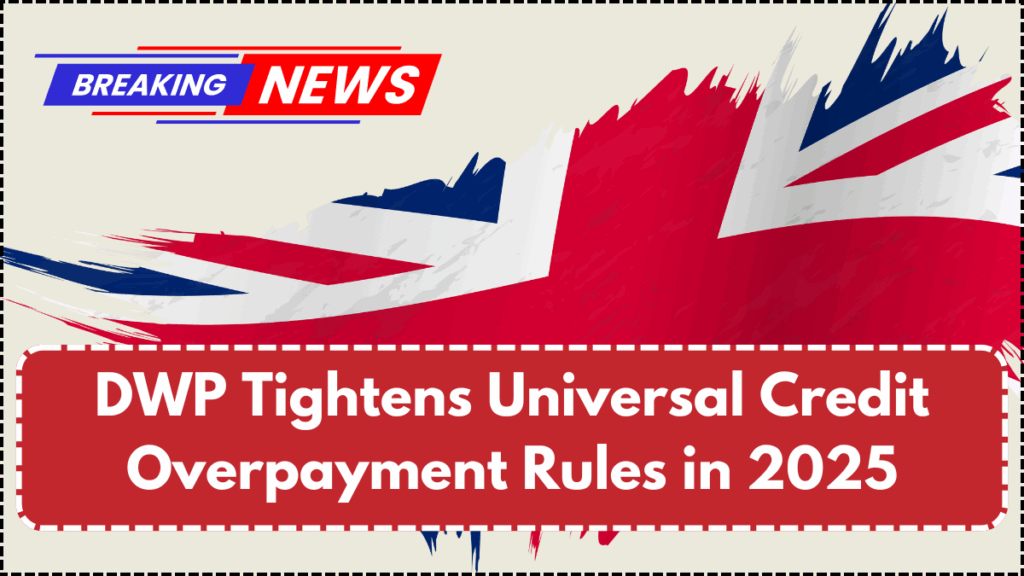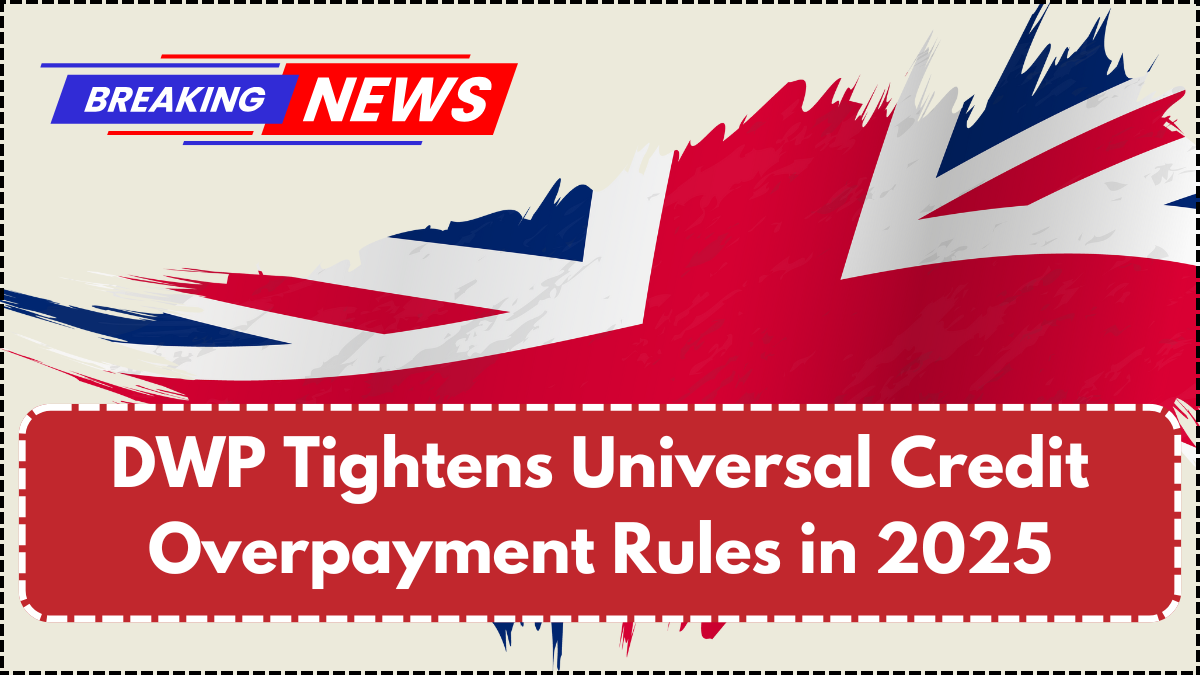In June 2025, the Department for Work and Pensions (DWP) rolled out stricter DWP Universal Credit overpayment rules 2025, marking a significant policy shift aimed at curbing benefit fraud and accidental mispayments. These new regulations tighten repayment expectations and expand DWP’s authority to recover overpaid funds, even in cases where the overpayment wasn’t the claimant’s fault.

How the 2025 Changes Affect Universal Credit Claimants
The updated DWP reclaim policy no longer treats unintentional overpayments with leniency. Whether caused by claimant error, delays in reporting income, or administrative mistakes, overpayments will now be treated the same. The burden falls more heavily on recipients to spot and report discrepancies quickly.
Starting this year, the DWP will automatically initiate universal credit repayment UK procedures without requiring a formal dispute process. If claimants don’t respond within a set timeframe, deductions will begin directly from their ongoing benefit payments or wages via Direct Earnings Attachments (DEA).
Key Differences in Overpayment Enforcement in 2025
The new rules reshape how overpayments are classified and collected. Below is a comparison of the previous and current enforcement measures:
Aspect | Before 2025 | After June 2025 |
|---|---|---|
Fault-Based Distinction | Considered fault vs no-fault | All overpayments treated equally |
Repayment Start | Often after dispute review | Immediate, automated deductions |
Challenge Window | 30+ days to respond | Reduced to 14 days |
Earnings Attachment | Rare | Widely used via DEA |
Why the DWP Is Tightening the Reins Now
The UK government attributes this stricter approach to growing overpayment figures, which hit over £8 billion in 2024, primarily driven by income misreporting and delays in claim updates. The new DWP Universal Credit overpayment rules 2025 aim to reduce this financial gap by enforcing fast, automated recovery. Officials argue that a streamlined, uniform response discourages misuse and promotes accountability among claimants.
The DWP has also enhanced its data-matching tools and cross-agency tracking, making it easier to flag inconsistent earnings and undeclared income. Employers are required to report real-time earnings data, allowing the department to intervene more rapidly.
What Claimants Can Do to Protect Themselves
Navigating universal credit repayment UK responsibilities in 2025 means staying proactive. Claimants should:
- Regularly review their UC statements for errors.
- Immediately report changes in income, household status, or employment.
- Keep clear records of communication with the DWP.
Those facing financial hardship can apply for repayment deferrals or reduced deduction rates, but approval isn’t guaranteed. Legal aid groups warn that vulnerable claimants may struggle under the faster, less forgiving process.
Consequences of Non-Compliance
Ignoring repayment demands under the new DWP reclaim policy could trigger serious consequences, including:
- Larger monthly deductions
- Wage garnishment through employers
- Impacted credit scores
- Possible legal proceedings in extreme cases
The DWP emphasizes that intent no longer plays a role; even honest mistakes will lead to repayment obligations. This has raised concerns among advocacy groups, who say the new system prioritizes recovery over fairness.
Conclusion
The revised DWP Universal Credit overpayment rules 2025 mark a sharp departure from previous policies. While designed to reduce fraud and recover taxpayer money, the rules place new pressures on honest claimants. Staying informed, vigilant, and responsive is more important than ever.
FAQ About DWP Universal Credit Overpayment Rules 2025
What triggers a Universal Credit overpayment in 2025?
Overpayments can result from incorrect income reports, failure to update your claim after personal changes, or DWP administrative errors.
Can I dispute an overpayment notice?
Yes, but the timeframe to respond is now shorter (14 days). After that, deductions may start automatically.
What happens if I can’t afford repayments?
You can request reduced deductions or a repayment plan, but the DWP has final discretion.
Are there any exceptions under the 2025 rules?
Very few. All overpayments are treated uniformly, regardless of cause.
How can I avoid getting overpaid?
Monitor your Universal Credit account, report changes quickly, and double-check earnings info submitted by employers.
Click here to learn more
